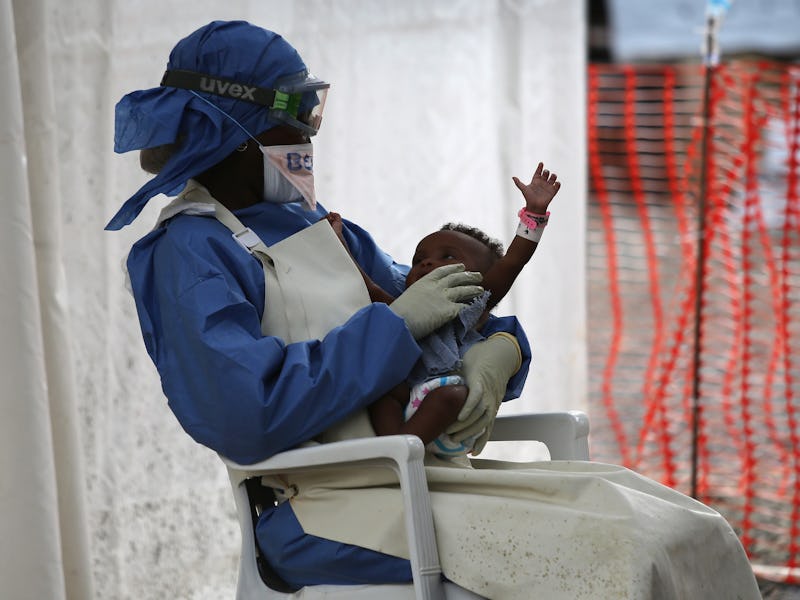Ebola Survivors Are Key to Developing Vaccine
Ultra-potent antibodies taken from a survivor of the Zaire outbreak point to Ebola's elusive weak spot.

Millions watched in terror as Ebola spread from West Africa, leaving thousands of hemorrhaging bodies in its wake. Despite the severity of the 2014 outbreak, a few lucky survivors pulled through — and they’re the center of a new effort to create a vaccine for the post-Ebola world.
A team of researchers led by Scripps Research Institute in California studied antibodies — the immune system’s weapons for finding and neutralizing viruses — in one particularly robust Ebola survivor. Finding that this individual’s antibodies were particularly good at shutting down the virus in Ebola-infected mice, the biologists looked closer at how the antibodies achieved this feat, and published the results today in the journal Science.
When the immune system senses an intruder, it reacts by sending hundreds of antibodies that bind to different regions of an offending molecule — in this case, the Ebola virus — to prevent it from carrying out its deadly mission. Unfortunately, many people affected by the epidemic weren’t able to produce the right kind of antibodies. Perhaps these molecular defenses bound the wrong region, or they weren’t able to stick. Unimpeded, the virus managed to take over.
The survivor from the Zaire outbreak, however, did have the right kinds of antibodies, the studies in mice demonstrated. These antibodies target a specific part of the Ebola molecule — the stalk — which appears to be its Achilles’ heel. Antibodies that go after this region, the researchers found, provided the most post-exposure protection, with survival rates of 60 to 100 percent.
The new study hasn’t led to a vaccine just yet — researchers still need to figure out how to elicit those robust antibodies from other people. But it has succeeded in narrowing the researchers’ targets down to a single region of the Ebola virus, eliminating a lot of time-consuming guesswork. If that happens, Ebola panic will be one step closer to history.